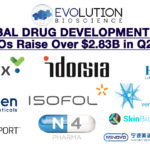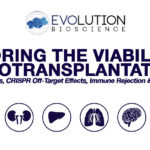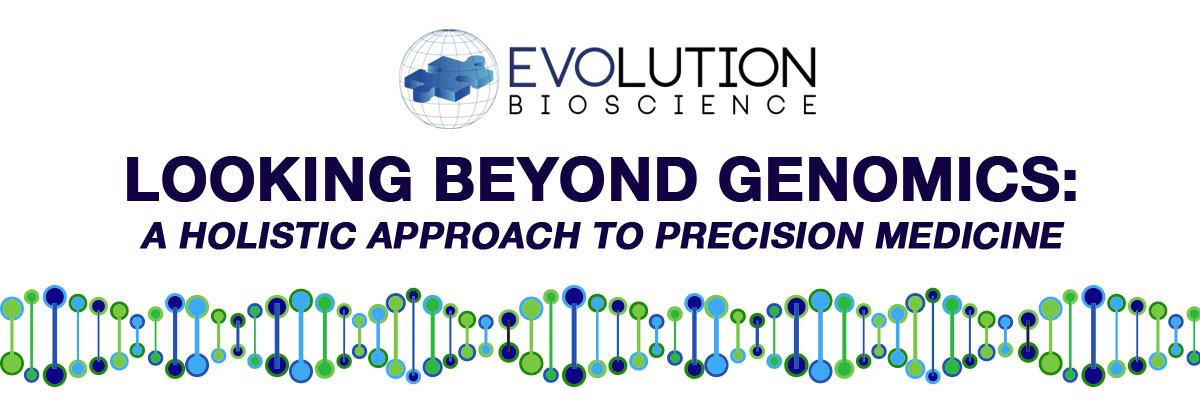
England’s Chief Medical Officer, Dame Sally Davies, recently called for making genomic testing as common as blood tests in order to usher in the era of precision medicine, beginning with the treatment of cancers and rare diseases. With multiple institutions, government agencies and companies already undertaking large-scale genomic testing and analysis, Davies asserts that “the age of precision medicine is now and the NHS must act fast to keep its place at the forefront of global science.”
The Human Genome Project, a 13-year long international effort to sequence the entire euchromatic human genome, was declared complete in April 2003. As subsequent advances in sequencing and informatics technologies made large-scale genomic analyses significantly more affordable and accessible, researchers have launched ambitious genomic projects aimed at further elucidating the mysteries of the human genome.
Precision Medicine, sometimes called personalised or stratified medicine, is a holistic approach for protecting health and treating disease that considers an individual’s genes, family history, behaviours, and environment. Interventions are tailored to individuals or groups, rather than using a one-size-fits-all approach in which everyone receives the same care.
Where Precision Medicine differs from other concepts that have been used in the past, such as Theranostics & Pharmacogenomics, is the fact that these terms are focused on the use of tests to identify optimal therapy via a combination of maximising efficacy, and or minimising the potential for adverse drug reactions. In other words, these terms deal with treating the disease optimally as opposed to identifying those most at risk in the first place, with a view to minimising the occurrence of disease. There are at least 32 initiatives with a focus on personalised medicine and genomics currently in progress around the world, as highlighted in our timeline infographic below:
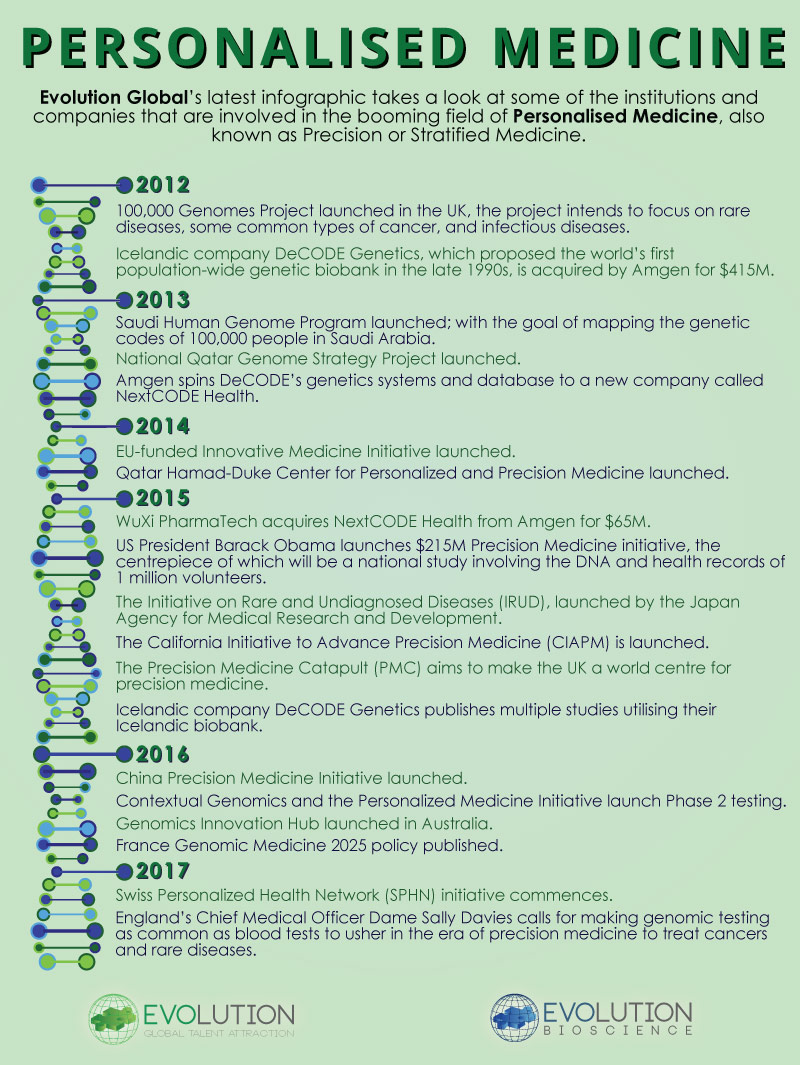
Ultimately the question is, given the complexity of the human genome and indeed the environment an individual may be exposed to at a given time, will Precision Medicine work? Evolution Bioscience Director Dr. Frank Rinaldi predicts that “it is likely that it will be many years before one can confidently state one way or another.”
Initial results in the UK are throwing up interesting findings, particularly as they pertain to rare diseases, of which a number are being found arising from spontaneous new mutations that were not found in the DNA of either parent. Interestingly in some cases the same mutation can display marked differences in symptoms. A recent report studying British adults of Pakistani heritage identified a homozygous gene mutation believed to be associated with complete infertility. However, this homozygous gene mutation was found in an Asian woman who was a healthy mother of 3 children.
In cancer, there are many reports that indicate that mutations are a consequence of dynamic tumor genomic heterogeneity and that such variance can occur at the single cell level, resulting in a bewildering array of genetic alterations and sub-classifications. These findings are not intended to belittle the outstanding genomic sequencing efforts that are being undertaken at present, but rather are intended to highlight that genetic findings may not always translate to a phenotypic reality, and that other approaches are needed. In this regard, perhaps a more balanced approach should be taken encompassing technologies that involve Proteome, Metabolome and Phenome-based approaches.
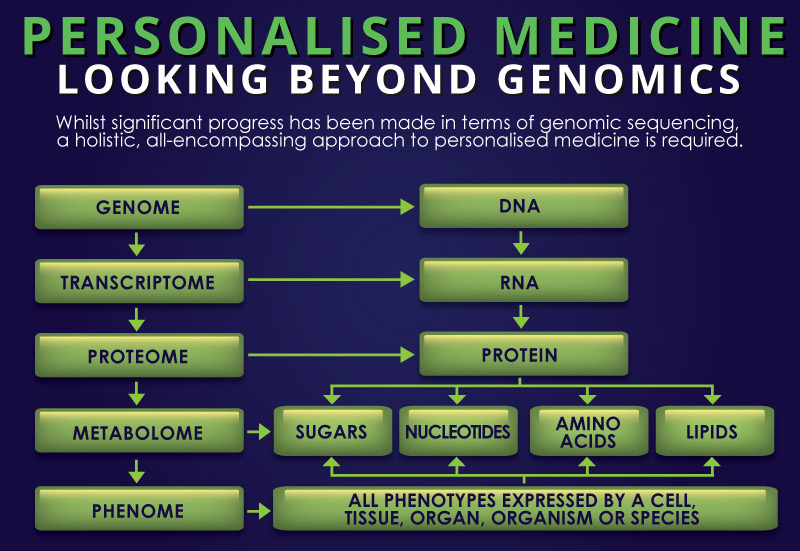
In summary, Precision Medicine is and will increasingly be a complex, multifaceted “novel” approach to the prevention, diagnosis and treatment of disease. Significant advances in genomic sequencing have enabled researchers to make great progress, however a multifaceted strategy and an all-encompassing approach to treatment will be required in order to fully deliver on the potentials of Precision Medicine. Whilst Dame Sally Davies call for a genomic revolution within the NHS is laudable, the collection of genetic data is likely to be the tip of the iceberg.
You can download a PDF copy of our Personalised Medicine infographics via the button below:


